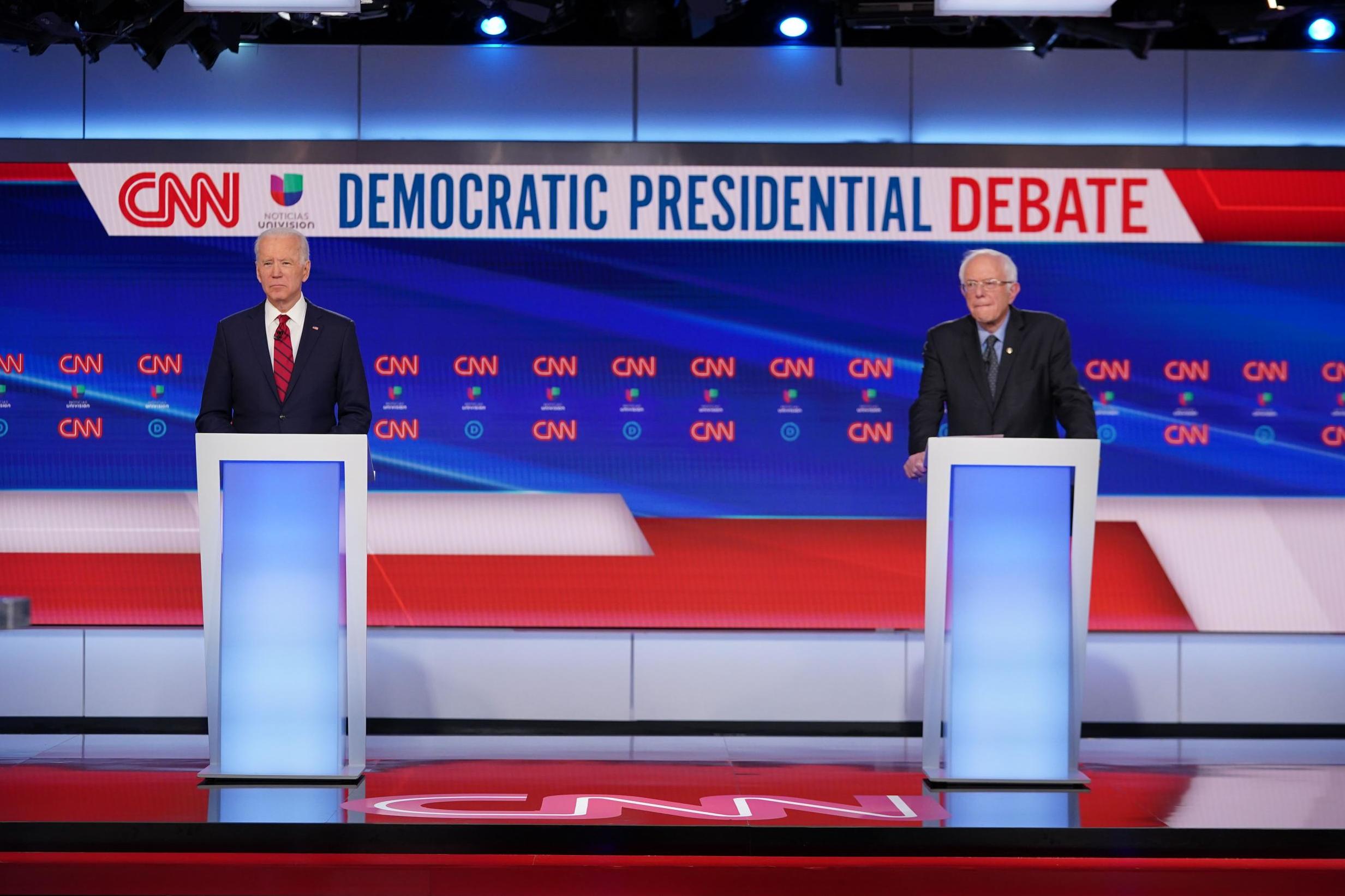Democratic debate: Who won and who lost the latest 2020 showdown?
Coronavirus looms over the race for the party's nomination in an unconventional debate

Your support helps us to tell the story
From reproductive rights to climate change to Big Tech, The Independent is on the ground when the story is developing. Whether it's investigating the financials of Elon Musk's pro-Trump PAC or producing our latest documentary, 'The A Word', which shines a light on the American women fighting for reproductive rights, we know how important it is to parse out the facts from the messaging.
At such a critical moment in US history, we need reporters on the ground. Your donation allows us to keep sending journalists to speak to both sides of the story.
The Independent is trusted by Americans across the entire political spectrum. And unlike many other quality news outlets, we choose not to lock Americans out of our reporting and analysis with paywalls. We believe quality journalism should be available to everyone, paid for by those who can afford it.
Your support makes all the difference.After 10 debates with crowded stages, the race for the 2020 Democratic nomination to face Donald Trump in November has whittled down to two men.
Joe Biden and Bernie Sanders — approaching another crucial round of primary elections on 17 March — entered the debate on Sunday night in an unprecedented time in American elections as the growing threat of a coronavirus pandemic has gripped the nation.
Without a live audience, what followed was a more-focused, often-aggressive and policy-driven debate between the candidates, as the Covid-19 crisis bookended the debate and gave both men a chance to frame their platforms against the crisis and offer Americans a compassionate, decisive message that has been absent from the White House.
Winners
Bernie Sanders’ progressive platform
The national emergency over coronavirus has exposed failures throughout the US, from the administration of healthcare to safety nets for sick employees and working families with children out of school. Through the prism of the coronavirus, the debate gave Sanders the best opportunity yet — in a focused, audience-free environment — to make the case for a transition to a single-payer system and a government overhaul to serve the most vulnerable, in his argument that the current US response, and its shortcomings, are part of an institutional failure.
Biden has argued for a “first things first” approach to the government’s response, pointing to the urgency of the crisis and the failures of the Trump administration. But in the debate over crisis management, it was Sanders who could point to the root of the problem.
The former vice president’s path to the nomination becomes clearer with each primary election win, though his wins undermine a massive movement among progressive voters — and millions of people committing to support a left-wing candidate — that won’t necessarily disappear after the nominee’s selection.
But in exit poll after exit poll, elements of the senator's progressive platform — including single-payer healthcare — are supported by a majority of voters thus far.
Now that the path has narrowed, the pressure is on Biden to look left and adopt progressive policies, regardless of whether it’s Sanders who’s competing in November.
The political revolution that Sanders and his campaign has urged won’t disappear on 4 November.
Joe Biden’s ‘compassion’
With a relatively quiet debate format, the strongest asset in the former vice president’s rhetorical style didn’t have to compete with several other voices rushing to finish his sentence or rebut a gaffe or stumbled-on sentence.
Here, Biden could lean on his White House experience and propensity for storytelling — and he did both in his closing remarks, painting the picture of a woman in a nursing home, using sign language to communicate, and reminiscing about his time in the White House Situation Room where the administration was “pulling together the best people” to ask “what are the prescriptive moves we need now” to address a crisis.
His compassionate, though often-winding, storytelling has been missing from the White House as Trump’s messages has failed to provide any comfort in difficult times. Biden seized on that moment in a debate with fewer voices sharing the stage, though once he has the audience’s attention, he has to meet them with a response.
Though Mr Biden's past decisions — from potential cuts to Social Security to wavering on abortion rights, supporting the Wall Street bailout and his super PAC support — were easy targets, the debate ultimately returned back to the coronavirus threat and whether the candidates are prepared to meet it. Biden's call for an "immediate" solution is likely to keep the attention of a weary electorate.
Losers
All the other debates
Sure, they were entertaining. But a one-on-one approach without an audience interrupting — booing, applauding — or candidates talking over one another prevented any significant “policy” discussion. This debate was more of a conversation that better suited their styles.
Donald Trump
Biden and Sanders agree that the president poses an ”existential threat” to democracy who failed to save lives or soothe anxieties amid a pandemic. Both candidates have agreed to campaign for one another should either of them become the nominee. If that translates to support at the polls in the generals, that amounts to a powerful and potentially united front — and one that voters agree is the most important reason they’re showing up to the polls.
Join our commenting forum
Join thought-provoking conversations, follow other Independent readers and see their replies
Comments